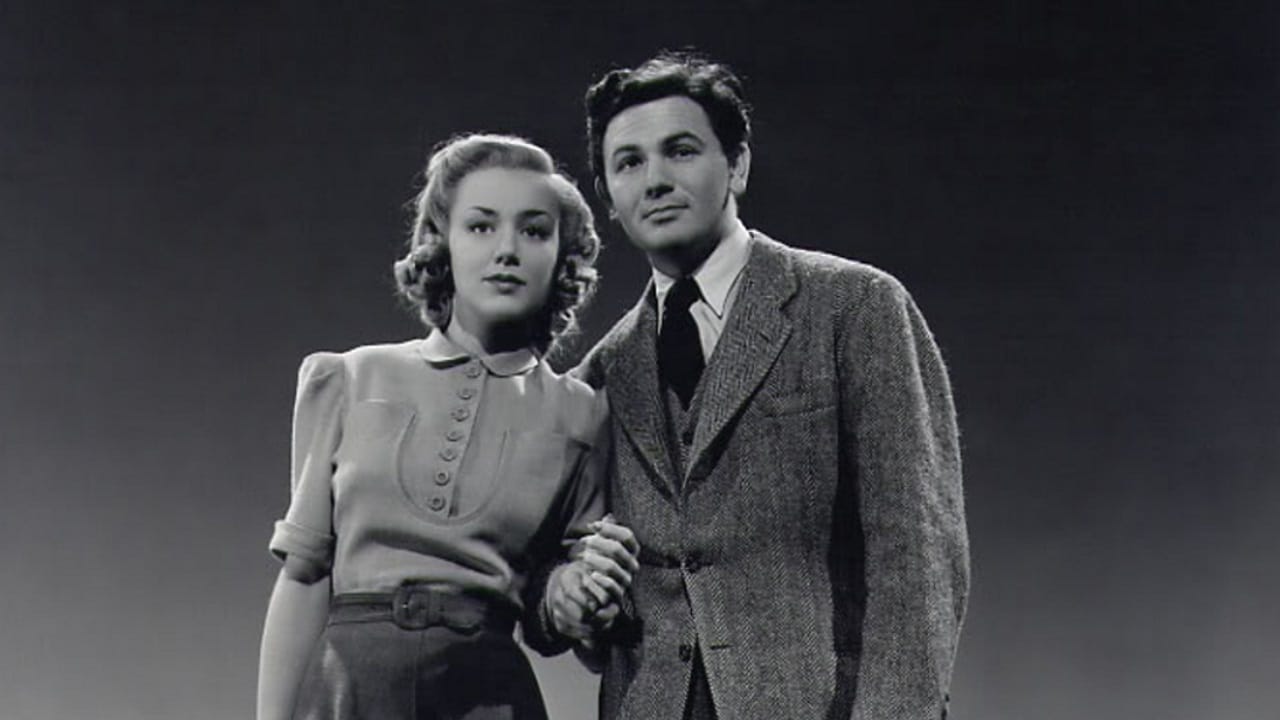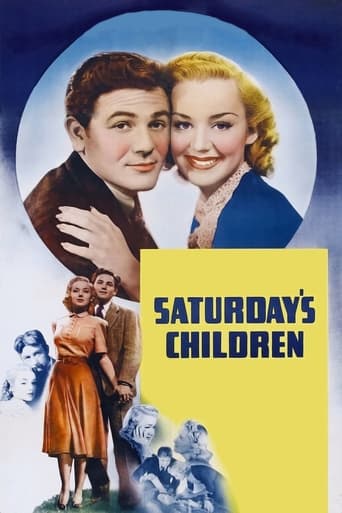

Far from Perfect, Far from Terrible
... View MoreA Disappointing Continuation
... View MoreWhen a movie has you begging for it to end not even half way through it's pure crap. We've all seen this movie and this characters millions of times, nothing new in it. Don't waste your time.
... View MoreI am only giving this movie a 1 for the great cast, though I can't imagine what any of them were thinking. This movie was horrible
... View MoreSo the title card claims, and it's based on a play by Maxwell Anderson, a distinguished American playwright who tackled tough subjects--fascism, apartheid, congressional dysfunction. I don't know this play, but whatever it was, the Epstein brothers utterly standardized it in their thin- blooded adaptation, a weak domestic drama where co-workers John Garfield and Anne Shirley meet, fall in love, marry, and suffer small-people problems. He's polite and mild-mannered and uninteresting, and she's pure ingenue, and watching them trod along the well-worn path of conventional screen romance has no bite. Even Claude Rains, as her father, seems disengaged. At least Lee Patrick, as her scheming sister, and Roscoe Karns, as her cynical brother-in-law, provide a little bite, and George Tobias is on the periphery, playing what he always played. But, despite an attempted suicide, a hidden pregnancy, and penny-ante deceptions in the young pair's marriage, it's slow, repetitive, and unfelt. And it needs edge. Oh, how it needs edge.
... View MoreJohn Garfield, a greatly underrated actor, with a sadly short career, was the first real "modern" actor pre-Brando. He is stellar as the working class hero struggling with financial setbacks, unrealized ambitions and a new marriage. He imbues the character of Rims Rosson with a poignancy illustrating the inner turmoil of a man whose responsibilities and love for his wife conflict with his desire to accomplish his dream of travel and professional distinction. Claude Rains, as the titular head of this extended family, a man toiling for years at a company desk as bookkeeper, lends heart and dignity to this story of a father driven to carry out the ultimate sacrifice in order to aid the newlyweds. Ann Shirley gives an adequate performance as the modest, simple wife whose expectations and worldly ambitions starts and end with marriage. Although produced earlier on stage and film, the story elements are timeless. This 1940 movie version is an excellent slice of life representing the American "everyman" in a Depression era America on the brink of World War II.
... View MoreThe picture is consistently out-of-joint as a result of the filmmakers' decision to deal with some rather substantial issues (marriage, poverty, ambition) as themes appropriate for a lighthearted, quasi-comic treatment. Smiling and accepting throughout, the characters suffer no more than mildly bruised feelings before turning their thoughts toward supposedly better days ahead. Seemingly, just about any setback can be overcome by optimism, however groundless, and an acceptance of whatever it is that life holds. That such naive characters would presume to counsel one another verges on the ludicrous. None is a success, all have been manipulated by others and by the vicissitudes of life itself - apparently without having learned a thing from their experiences. The wisest, most thoughtful of them all, played by Claude Rains, has good advice for his family, but has achieved no measure of success. Anne Shirley, sweet and innocent, lacks the wherewithal to come to grips with life. The foremost liability here is the egregious miscasting of John Garfield as a wide-eyed, vacuous sap who, for all intents and purposes, might have been born yesterday. What may have been meant to be a refreshing change from his familiar type of character results in a role which is not beyond him, but beneath him.
... View MoreThis wartime movie about the struggle of a family in a still economically depressed New York environment, tries hard to entertain with its Neil Simonesque dialogue. Then comes the bombshell. When father Halevy (Claude Rains), a failure by anyone's, including his own, standards, realizes that his adored daughter Bobby (Anne Shirley) is headed for an unrealized life of failure not unlike his own for want of a mere one thousand dollars, he decides to give her this money the only way he still can, by staging a potentially suicidal elevator crash. The scene of Halevy's leaving home before going through with this scheme is very close to Willy Loman's corresponding scene in "Death of a Salesman." According to the credits, "Saturday's Children" is based on a Pulitzer Prize winning play by Maxwell Anderson, which a young Arthur Miller surely must have seen. If it suggested the end of his major masterpiece "Death of a Salesman" to Miller, that alone would redeem this otherwise schmaltzy play/movie.
... View More